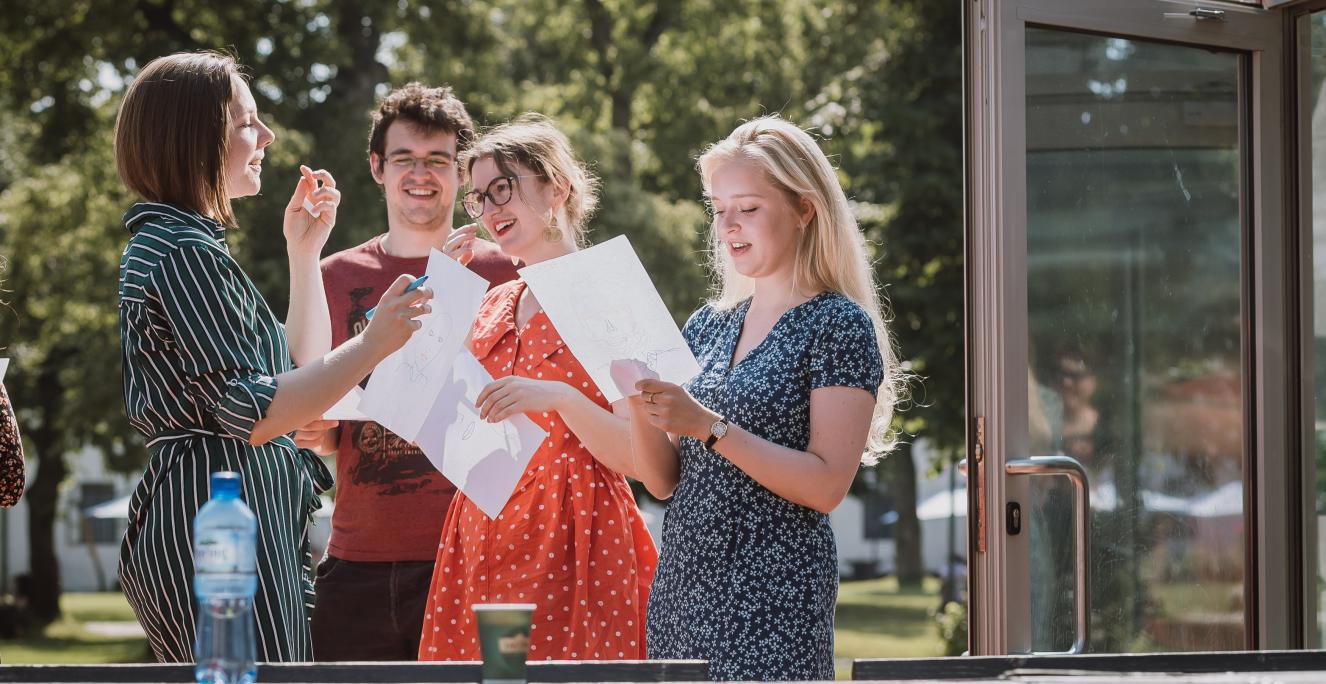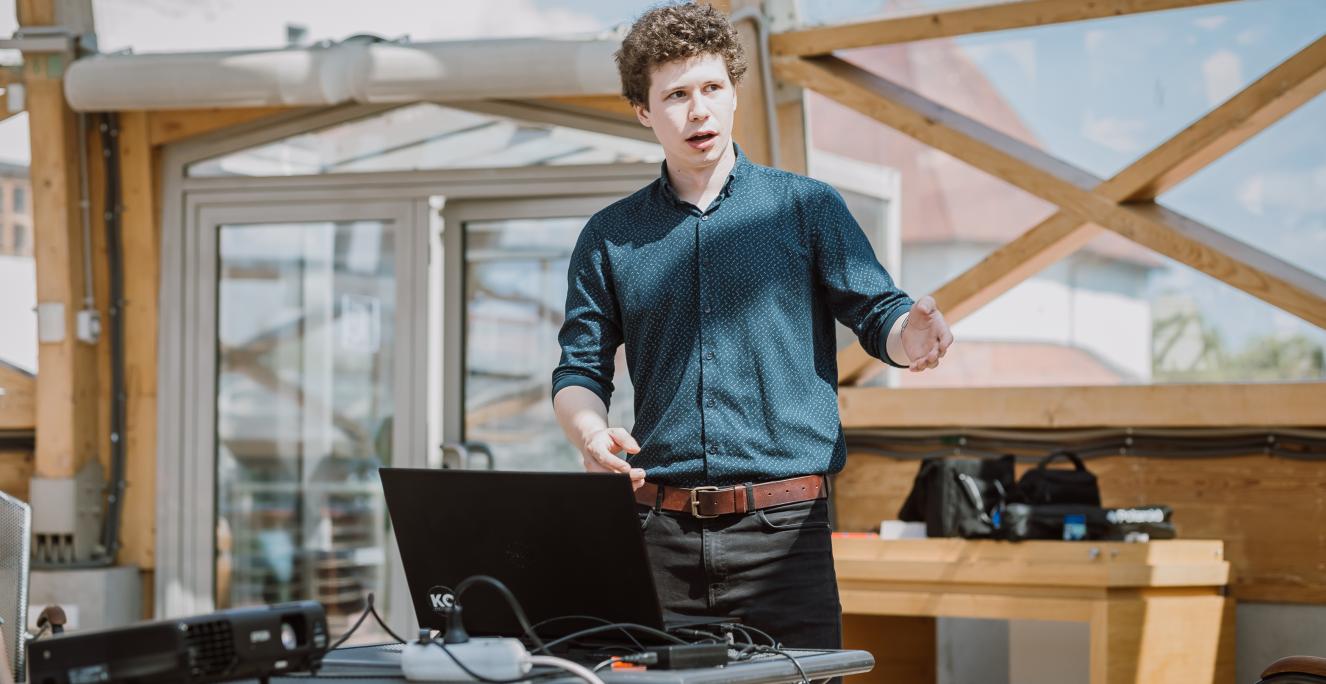Academic Curriculum
The academic curriculum of the 15 ECTS-points course focuses on Europe’s history, current political debates, minorities and nationalism.

A jolly discussion during the Minority Lab in Târgu Mureș, Romania
Photo: Radu Rosca
The organizer of the course is the Centre for Border Region Studies at the University of Southern Denmark and course responsible is Associate Professor Martin Klatt.
The teachers are all affiliated with the Centre for Border Region Studies.
Teaching method will be active learning, where the participants are obliged to engage in classroom discussions and group work. The participants will research and present cases under the guidance of the teachers.
Important info on ECTS-credit
It is not compulsory to take an exam after the programme.
This is of course necessary if you want to achieve the 15 ECTS-credits, but you are very welcome to join the academic classes out of interest without taking the exam. Please let us know on your application what you have in mind.
If you want to take the exam, deadline for registration is Feb. 24, 2023.
The University of Southern Denmark strongly expects that studies such as Political Science, European Studies, History, Social Sciences etc. will accept this curriculum as merit, but please note that any approval is depended on your home university and cannot be guaranteed by the University of Southern Denmark.
Here you can download the entry requirements from the University of Southern Denmark. These are only relevant for participants choosing to take the exam, not for participants "just" wanting to follow the classes.
Academic requirements for signing up for ECTS points
Full academic description for 2023

A teaching session during the Minority Lab in Târgu Mureș, Romania.
Photo: Radu Rosca
The official course description for 2023 can be found just above. For a lighter example, the academic course included in 2022 the following topics, which were presented theoretically and in case studies.
Week 13
Introduction to the programme. No academic schedule.
Week 14-23
Start of academic programme including:
- From Stone Age nomads to societies: identity and group formation (prof. Dorte Andersen)
- A brief European history – from the Romans to the EU (prof. Steen Bo Frandsen)
- Nationalism and the concept of national minorities
- The post WWI peace order – nation states and minorities
- Minorities as “5th column” – cause of WWII?
- Soviet nationality politics – and their impact today (prof. Katarzyna Stoklosa)
- The post-Yugoslav space: Croatia, Bosnia and Kosovo as country cases (prof. Dorte Andersen)
- Post-Cold War: European frameworks (framework convention for the protection of national minorities, European charter for regional and minority languages)
- Regionalization, cultural autonomy, territorial autonomy, non-territorial autonomy as frameworks for minority accommodation
- Other minorities (religious, linguistic, sexual) – different approaches?
- Populist turn? Renationalization or diversity – contemporary developments
- Cases: Ukraine, Hungary, Scandinavia (Sami), Denmark-Germany… - lectures and student presentations
- A study trip to South Tyrol. No academic schedule.
Week 24 & 25
Preparations and exams.